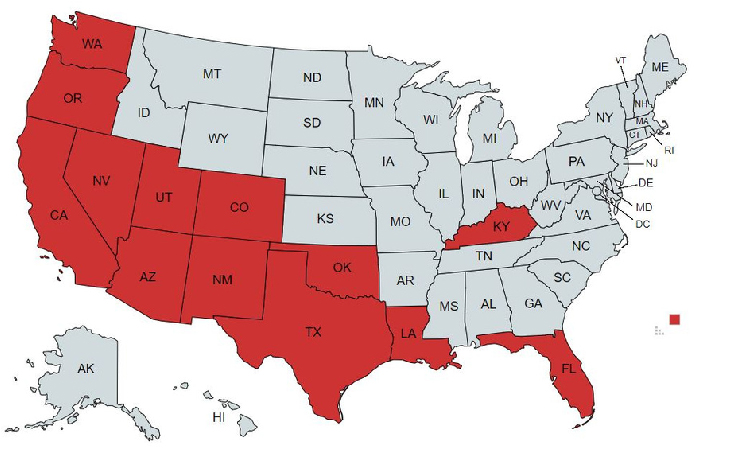
Territories We Serve: AZ, CA, CO, FL, KY, LA, NM, NV, OK, OR, TX, UT, WA


Territories We Serve: AZ, CA, CO, FL, KY, LA, NM, NV, OK, OR, TX, UT, WA

Do you plan to invest in a rental property? Maybe you’re planning to convert your primary residence into a rental unit?
If so, then you need to get a landlord’s insurance policy. Your regular homeowner’s insurance stops working when tenants move in. As C21 Doug Anderson PM explains, a landlord’s insurance is designed to keep the rental property owner’s interests in mind.
In the following post, we’ll cover some important points concerning landlord’s insurance and its rules. And you’ll learn about the unique benefits of renter’s insurance as well.
Why isn’t homeowner’s insurance enough for my rental unit?
A regular homeowner’s insurance doesn’t cover rental properties. You must live in the home to get a homeowner’s insurance plan.
If you convert your home into a rental and when a tenant moves in, you’ll lose the regular insurance coverage. Any potential losses become huge risks. That’s why your smart choice is getting a new insurance policy that covers rentals.

How can I switch the policy?
The best course of action is to call your insurance provider. Ask directly to switch your homeowner’s policy to a landlord’s policy. The procedure that follows isn’t time-consuming in most cases.
When you switch over to a landlord insurance policy, there will be a price difference between your original plan and the new policy. Depending on the provider, the price increase is around 15% to 25% of the original cost.
Switching the policy isn’t something you should delay. Accidents can happen and there’s no guarantee that the first days after move-in are free of any incidents.

What about short-term rentals?
Rental properties doubling as primary residences may receive coverage under your homeowner’s insurance. But there are no golden rules here. This is highly dependent on the individual company’s policy.
Most of the time, homeowner’s insurance cover only short-term rentals for a weekend or two. The companies ask for prior notice before you have any temporary tenants over.
What does the landlord’s insurance cover?
There are no universal standards for basic coverage. Your insurance coverage details depend on the particular company that’s issuing the document as well as other factors. However, many companies cover the following basics:
Additionally, insurance companies offer optional add-ons. You’ll have to pay a premium for this. In turn, you can enjoy a wider coverage of causes and incidents.

Some optional coverages you may consider are:
These are just a few examples of what insurance companies may cover. Shop around, ask for information, and compare the providers for finding the right match.

How much does the landlord’s insurance cost?
Insurance policy prices rely on complex algorithms. The prices are determined by accounting for multiple factors. That’s why you could find huge differences when comparing your quote with other landlords. And this can hold true even if you have similar properties.
Here is some of the information that insurance providers use for determining the cost:
Does the landlord’s insurance cover my tenants?
Your tenants need to get renter’s insurance. This insurance plan covers their personal items when damaged by fire, water or theft. The landlord’s insurance wouldn’t cover this.
More often than not, landlords make the renter’s insurance mandatory for the tenants. They do this by adding a clause to the lease agreement. There will be fewer disputes after any of the tenant’s personal belongings are damaged.
You should explain this to your tenants that this is also for their protection. For example, lost belongings through theft means no coverage under the landlord’s insurance. Only a full renter’s insurance would protect them.
Does this insurance cover my personal belongings?
Most landlord’s insurance policies cover personal items for maintaining your property. Refrigerators, Washers and Dryers are good examples of what could be covered by your insurance plan. Any other personal items that you leave behind may not receive coverage. Check with your agent for more information.
The bottom line: insurance needs for my rental property
Operating a rental property calls for a landlord’s insurance policy. A regular homeowner’s insurance policy won’t extend coverage when you have tenants living in the property.
Usually, your landlord’s insurance policy covers the basics like:
However, you can always opt for add-ons. The premium ensures extra protection, like natural disaster coverage and utility services damage.
Research reputable insurance companies in your area to make your final decision or call us at 702-979-3299 for more information.
PREVIOUS POST
« Auto Glass Coverage